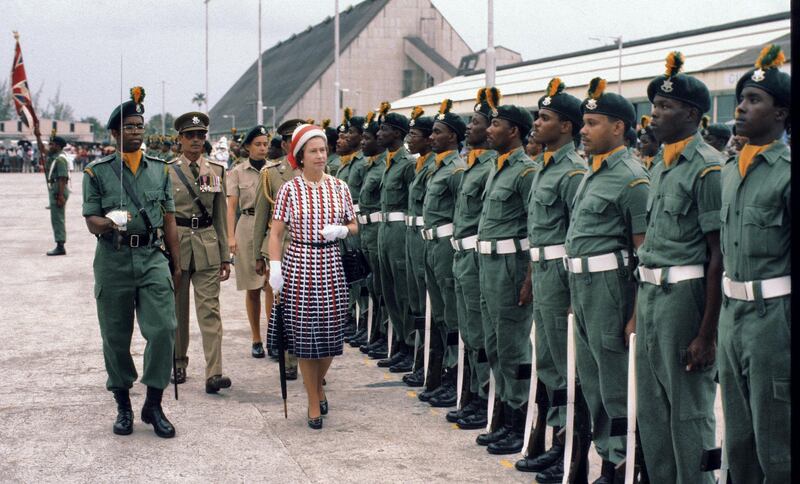Barbados is to remove Britain's Queen Elizabeth as its head of state and become a republic, the Caribbean nation's government has said.
"The time has come to fully leave our colonial past behind," said Barbados Governor General Sandra Mason, delivering a speech on behalf of the country's Prime Minister Mia Mottley.
"Barbadians want a Barbadian Head of State. This is the ultimate statement of confidence in who we are and what we are capable of achieving.
"Hence, Barbados will take the next logical step towards full sovereignty and become a Republic by the time we celebrate our 55th Anniversary of Independence."
The former British colony gained independence in 1966, but Barbados has maintained a formal link with the British monarchy as have some other countries that were once part of the British Empire. The queen is currently monarch for 15 Commonwealth countries.
The 55th anniversary is in November 2021.
Mrs Mason made the announcement in the annual throne speech at the state opening of the Barbados parliament.
"I entreat my government to remain steadfast in its determination that Barbados shall be a country of innovation, opportunity, productivity, prosperity, fairness, equity, justice, kindness, peace and good vibes," she said.
"The work of building the Barbados brand, is the task of every Barbadian, working together with my government."
At Buckingham Palace, the queen’s central London residence, a spokesperson said the idea "was not out of the blue".
In Barbados the move was generally welcomed.
The Republic of Barbados 🇧🇧
— Krys ✨ (@X_KrysJ) September 15, 2020
Well well well, never thought I’d see that day this is a reality
Barbados becoming a republic... if nothing else changes day to day I’ll still feel good to look at my son and say “No man is above you”... not even on some bs technicality. NO MAN !!
— Childfadas Matter (@Guru_Revenge) September 15, 2020
The queen's head appears on at least 35 currencies, including the Barbados dollar or Bajan. Most of those countries are former colonies.
The $2 bill also has John Redman Bowell while Sir Frank Worrell is on the $5 note and Charles Duncan O'Neal on the $10 bill. The $20 has Samuel Jackman Prescod, the $50 has Errol Walton Barrow and Sir Grantley Adams is on the $100 dollar bill.








